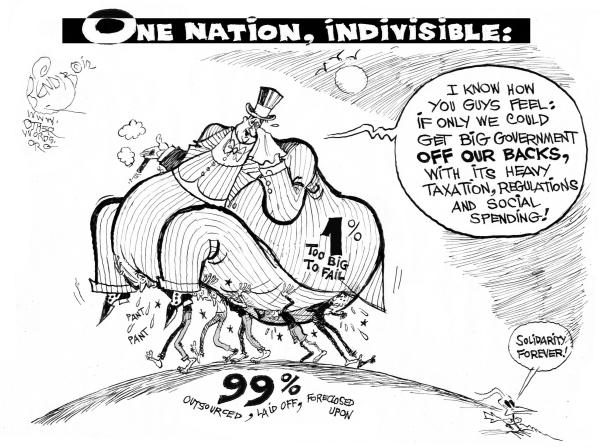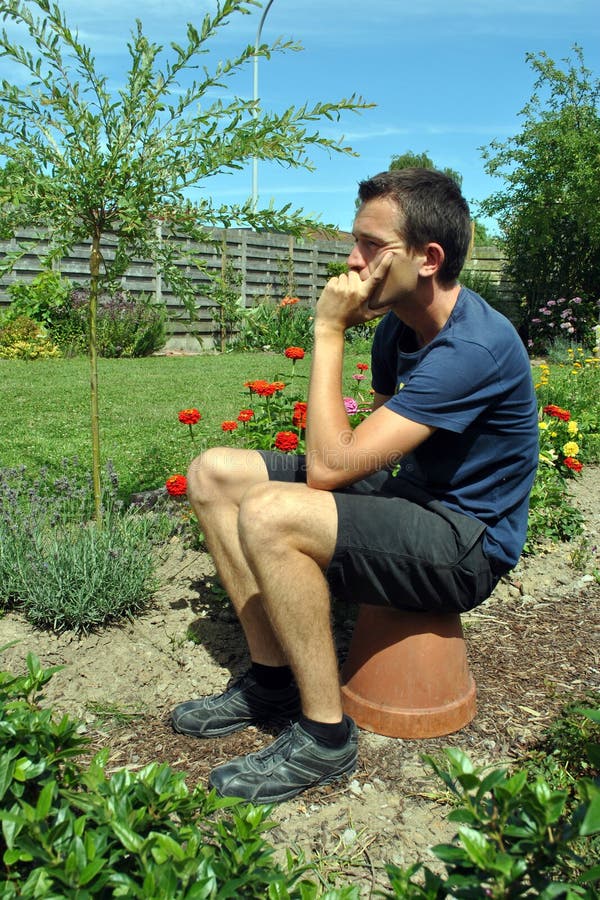Economy
See other Economy Articles
Title: The Richest 1% Will Own Two-Thirds Of Global Wealth By 2030, Report Finds
Source:
Zero Hedge
URL Source: https://www.zerohedge.com/news/2018 ... lobal-wealth-2030-report-finds
Published: Apr 9, 2018
Author: Tyler Durden
Post Date: 2018-04-11 09:43:51 by Deckard
Keywords: None
Views: 5836
Comments: 41
Back in November, Credit Suisse highlighted an alarming - yet altogether unsurprising - milestone in the increasing concentration of global wealth that has been perhaps the most influential force behind the populist revolts that rocked the US in 2016 and have continued to unfurl across Europe. According to the Swiss bank's annual "global wealth pyramid," for the first time, the wealthiest 1% of the world's population had accumulated more than half of its aggregate household wealth.
Credit Suisse's researchers describe in stark terms how global wealth inequality had actually improved somewhat in the years between the start of the new millennium and the financial crisis - but in the years after, the gap between the world's richest and poorest individuals widened dramatically, one of the most pernicious aspects of the Fed and the global cabal of central banks pumping easy money into the global financial system.

The researchers said that "our calculations show that the top 1% of global wealth holders started the millennium with 45.5% of all household wealth. This share was about the same until 2006, then fell to 42.5% two years later. The downward trend reversed after 2008 and the share of the top one percent has been on an upward path ever since, passing the 2000 level in 2013 and achieving new peaks every year thereafter. According to our latest estimates, the top one percent own 50.1 percent of all household wealth in the world.”
But while CS's report was unequivocally dire, a recent report published by the UK Parliament is even more harrowing.
According to the Guardian, projections produced by the House of Commons library suggest that the top 1% of the world's wealthiest individuals will own roughly 64% of the planet's wealth by 2030.
An alarming projection produced by the House of Commons library suggests that if trends seen since the 2008 financial crash were to continue, then the top 1% will hold 64% of the world’s wealth by 2030. Even taking the financial crash into account, and measuring their assets over a longer period, they would still hold more than half of all wealth.
Since 2008, the wealth of the richest 1% has been growing at an average of 6% a year – much faster than the 3% growth in wealth of the remaining 99% of the world’s population. Should that continue, the top 1% would hold wealth equating to $305tn (£216.5tn) – up from $140tn today.
Analysts suggest wealth has become concentrated at the top because of recent income inequality, higher rates of saving among the wealthy, and the accumulation of assets. The wealthy also invested a large amount of equity in businesses, stocks and other financial assets, which have handed them disproportionate benefits.
The study was the brainchild of Liam Byrne, a former Labour cabinet minister, who hopes it will factor into the discussion when the financial chiefs of the world's largest countries meet in Buenos Aires late this year for a G-20 summit.
"If we don’t take steps to rewrite the rules of how our economies work, then we condemn ourselves to a future that remains unequal for good," he said. "That’s morally bad, and economically disastrous, risking a new explosion in instability, corruption and poverty."
Unfortunately, the public is extremely sensitive to growing wealth disparity, and polls show most people in the UK are growing increasingly cynical about the prospects for change. Already a plurality of Britons believe the superrich have more influence and power than national governments.
New polling by Opinium suggests that voters perceive a major problem with the influence exerted by the very wealthy. Asked to select a group that would have the most power in 2030, most (34%) said the super-rich, while 28% opted for national governments. In a sign of falling levels of trust, those surveyed said they feared the consequences of wealth inequality would be rising levels of corruption (41%) or the “super-rich enjoying unfair influence on government policy” (43%).
Indeed, even if the incomes of the wealthiest individuals were frozen at 2017 levels, their share of the world's wealth would still expand thanks to returns on their investments, according to Danny Dorling, a professor at Oxford.
"Even if the income of the wealthiest people in the world stops rising dramatically in the future, their wealth will still grow for some time," he said. "The last peak of income inequality was in 1913. We are near that again, but even if we reduce inequality now it will continue to grow for one to two more decades."
One Tory MP quoted by the Guardian pointed out that while wealth inequality remains a problem, liberal capitalism has lifted more people out of poverty than any other system of government. Though this overlooks the fact that, while this holds true in most of the biggest developing countries, in the developed world, the working and middle class are at risk of seeing their standard of living decline vs. that of their parents' generation.
George Freeman, the Tory MP and former head of the prime minister’s policy board, said: “While mankind has never seen such income inequality, it is also true that mankind has never experienced such rapid increases in living standards. Around the world billions of people are being lifted out of poverty at a pace never seen before. But the extraordinary concentration of global wealth today – fuelled by the pace of technological innovation and globalisation – poses serious challenges.
"If the system of capitalist liberal democracy which has triumphed in the west is to pass the big test of globalisation – and the assault from radical Islam as well as its own internal pressures from post-crash austerity – we need some new thinking on ways to widen opportunity, share ownership and philanthropy. Fast."
Demands for action from the group include improving productivity to ensure wages rise and reform of capital markets to promote greater equality.
While this sounds like a plausible plan, the obstacles to it being put into practice are myriad - including opposition from corporations and the wealthy, who might prove reluctant to part with what they've gained. And even once central banks retract their stimulus and securities valuations inevitably fall, it remains unclear whether this trend can ever be reversed.
One thing's for sure: While pundits have been eager to call the end of the populist wave, as long as the wealth divide continues to widen, anger toward the status quo will continue to metastasize. (1 image)
Post Comment Private Reply Ignore Thread
Top • Page Up • Full Thread • Page Down • Bottom/Latest
Begin Trace Mode for Comment # 27.
#20. To: Deckard (#0) (Edited)
Civilization is a fragile thing. Private property, inheritance, banks, etc ... are even more fragile thing. They work best when used in moderation.
We are not so different from the chimps. When the top chimp, thanks to his merits of strong muscles, broad breast decides to sit together with few loudly hooting loyal groupies on a big pile of bananas, while the rest of the tribe is getting hungry, how long this social contract will last?


#25. To: A Pole (#20) (Edited)
People are people. Look at Christian ideals. Look at how many truly believe in the Son of God. But then look how those same people commit sexual sins and cannot make themselves be charitable all the time.
In the end, human beings are stubborn, and you either leave them be (and what they are will not be good), or you force them through superior power, which is itself not a Christian response.
Any way you turn, you run into the reality: people only want to be "so good", and the world does not want to be saved.
At that point you can mourn for awhile, but sooner or later you need to shrug your shoulders, say "that sucks", look to your own garden, and not expect to fix the world.
I've expressed my political and moral views pretty loudly on this site and elsewhere for years. Doing that never changed anything but my blood pressure.
In private life, on the other hand, I have been able to do much, and to cause truly great things to happen (from my perspective anyway). In the end that is all we can really hope to do: tend our own garden. If vast edifices like nation states rise and fall around us, that's not our fault individually.
I know how to fix what ails America. So do many of you. Each of our decisions would "work", in its fashion (by redistributing the problems and stress upon different people from those upon whom it currently reposes). None of them will come true. The country will careen along in ramshackle fashion, as it always has.
We can choose to invest our emotional energy in it or football games, but a more productive use of our energy and time is tending to our own gardens.
I think I'm going to start writing about that here. Politics and world affairs are exciting, but potatoes and soup are better for me and you.
#27. To: Vicomte13 (#25)
We can choose to invest our emotional energy in it or football games, but a more productive use of our energy and time is tending to our own gardens.
My garden is thinking :) 
Replies to Comment # 27.
When I "tend" my garden, it is generally by providing employment to other people, who then do what I tell them to do. This way I get a nice garden, and they get money to feed their families.
End Trace Mode for Comment # 27.
Top • Page Up • Full Thread • Page Down • Bottom/Latest
[Home] [Headlines] [Latest Articles] [Latest Comments] [Post] [Mail] [Sign-in] [Setup] [Help] [Register]
